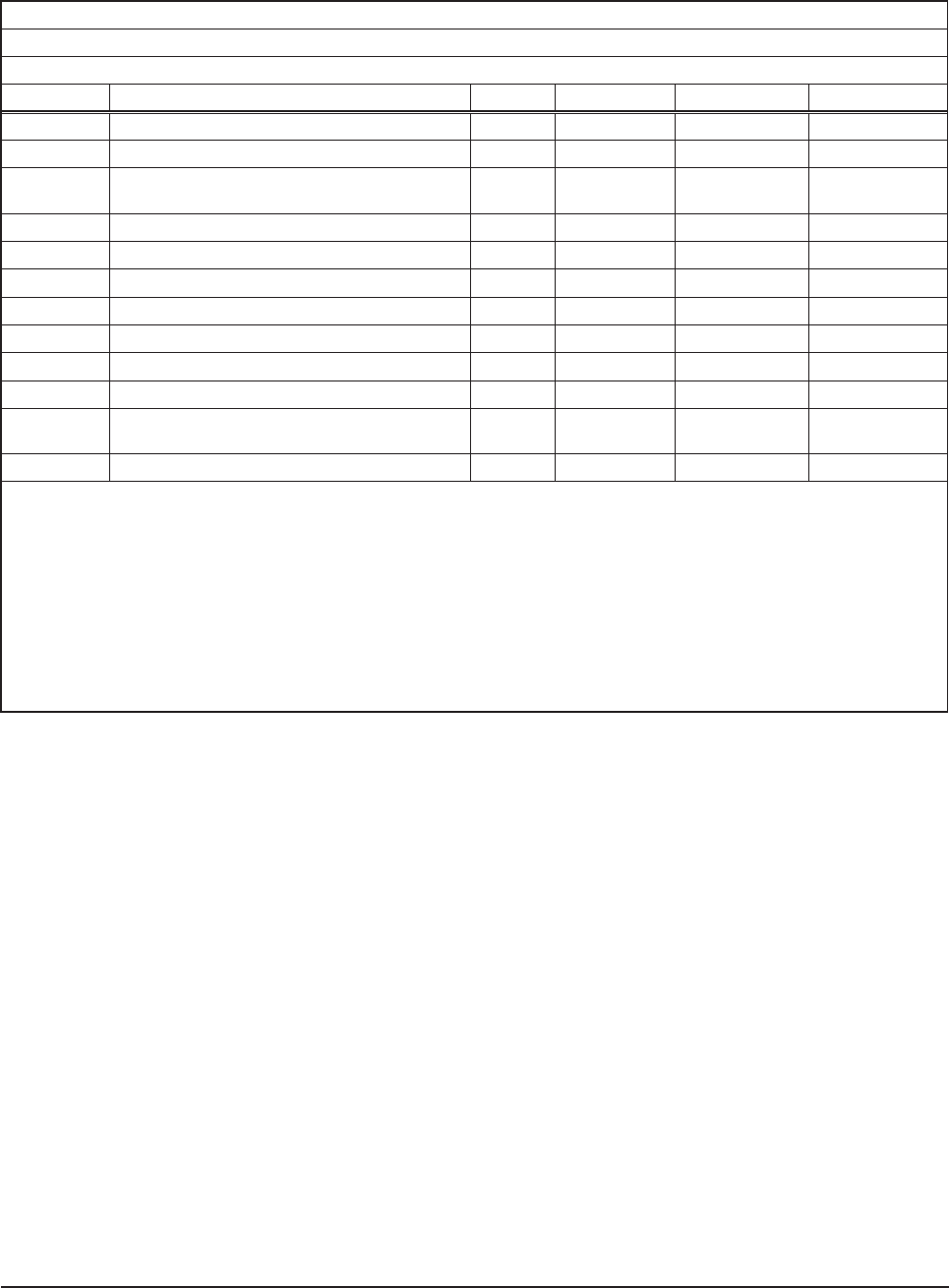
31
MN002000A © 2004 Navman NZ Ltd. All rights reserved. Proprietary information and specifications subject to change without notice.
Message ID: 1160
Rate: variable
Message length: 270 words
Word No. Name Type Units Range Resolution
1-4 Message header
5 Header checksum
6-7 Set time (Note 1) UDI 10 ms ticks
0 to
4 294 967 295
8 Sequence Number (Note 2) I 0 to 32 767
9 Table frequency offset (Note 3) I ppm 0 to ±51 0.15
10.0 Table frequency offset valid (Note 4) bit 1 = valid
10.1-10.15 Reserved
11 Offset error estimate (Note 5)
I ppm 0 to ±51 0.002
12 Aging rate estimate (Note 6)
I ppm/yr 0 to ±5 0.0002
13 Last rate update week (Note 7)
I weeks 0 to 32 767 1
14-269
Frequency standard table (Note 8): LSB,
MSB
I
weeks
ppm
0 to 1023
0 to ±19.05
4
0.15
270 Data checksum
Note 1: Set time is an internal 10 millisecond (T10) count since power-on initialisation enabled the processor interrupts. It is not used
to derive GPS time, but only serves to provide a sequence of events knowledge. The set time or T10 count references the receiver’s
internal time at which the message was created for output. The T10 range is approximately 71 weeks.
Note 2: The sequence number is a count that indicates whether the data in a particular binary message has been updated or
changed since the last message output.
Note 3: Each value of frequency error in the table shares this common offset value.
Note 4: Flag to indicate that the offset has been established.
Note 5: Filtered estimate of accumulated error in the table offset value.
Note 6: Filtered estimate of the current aging rate.
Note 7: Whole week number of the last update of the aging rate.
Note 8: LSB = the approximate time of last table entry update. MSB = the frequency error at each table temperature, less the table
offset.
Table 3-20 Message 1160 (frequency standard table output data)
3.5.1.16 Message 1160 (frequency standard table
output data).
This message contains parameters and table
data used in the receiver’s frequency standard
compensation model. It is intended that this
message will be used in conjunction with Message
1360 to retrieve and restore this information for
external storage. The contents of the ‘frequency
standard table output data’ message are described
in Table 3-20.


















